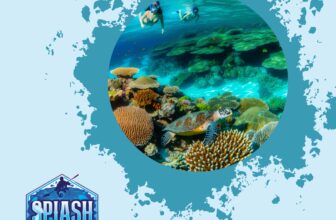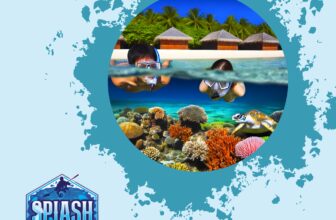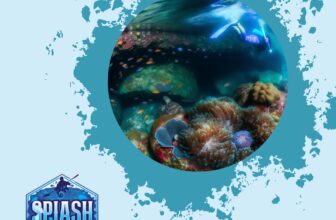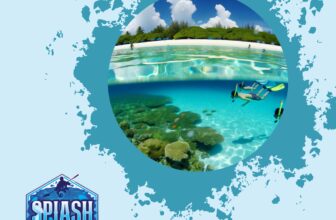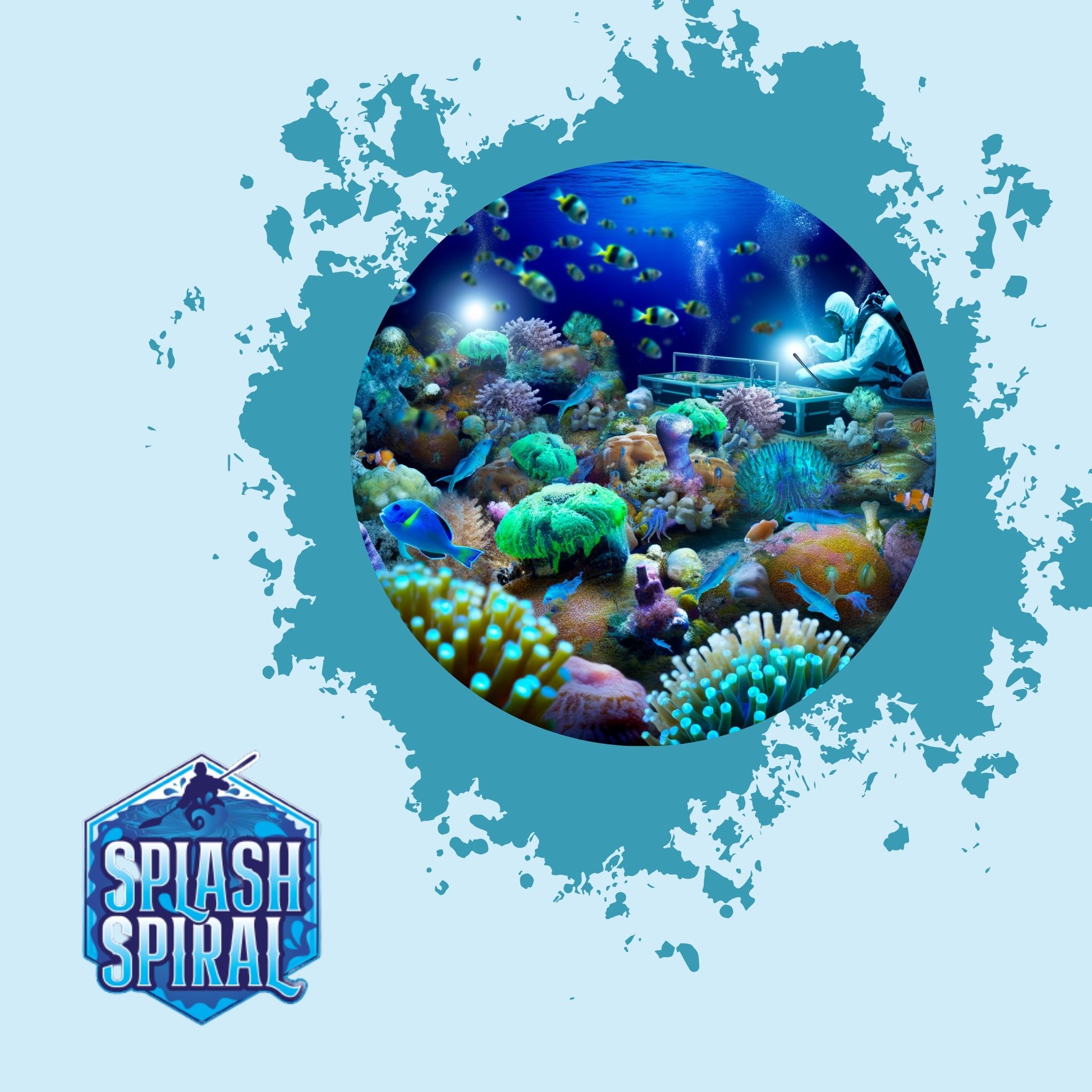
The ocean, covering over 70% of our planet, is a treasure trove of untapped resources. Marine pharmacology, an emerging field of research, is exploring these vast waters to discover new medications and treatments. In this article, we'll dive into the medicinal potential that marine environments hold and why it's crucial for the future of medicine.
Introduction
Marine pharmacology is a fascinating field that focuses on discovering new medicines from ocean resources. Picture this: the ocean, covering more than 70% of Earth's surface, is teeming with life forms that have yet to be fully understood. These organisms, from microscopic algae to deep-sea invertebrates, produce unique compounds that hold significant medicinal potential.
Why Marine Exploration for Medications?
- Traditional Sources Becoming Limited: Traditional sources for new drugs, like plants and terrestrial organisms, are becoming tapped out.
- Vast Biodiversity: The vast biodiversity of marine ecosystems offers a largely unexplored reservoir of bioactive substances.
- Innovative Treatments: These substances could revolutionize the way we treat diseases.
Article Overview
In this article, we’ll explore the medicinal potential that marine environments hold. We'll touch on:
- Historical Context: The historical context of marine medicine.
- Recent Advancements: Recent advancements in the field.
- Role of Biotechnology: The critical role of biotechnology in these discoveries.
Focus on Breakthroughs
Our primary focus, however, will be on the exciting new breakthroughs in marine pharmacology and what they could mean for future medical treatments. Whether you're an aspiring diver or just curious about the hidden treasures beneath the waves, you're in for an enlightening dive into a world of untapped possibilities.
The Importance of Marine Medicine
When we think about medicine, the ocean is probably not the first place that comes to mind. But the truth is, the waters covering our blue planet are a goldmine of potential treatments. This is where marine pharmacology strides into the spotlight. Understanding the historical context and unique advantages of marine resources for drug discovery is essential in appreciating why the deep sea holds immense promise for future therapies.
Historical Marine Medicine Discoveries
Did you know that ancient cultures were already tapping into marine resources for their healing properties? For instance, ancient Greeks and Egyptians utilized compounds from marine organisms to treat various ailments. These early uses were just scratching the surface of what the ocean could offer.
Fast forward to the 20th century, marine pharmacology took a significant leap with the discovery of Ara-C (cytarabine), derived from a sea sponge, which is now a vital drug used in cancer treatment. Such breakthroughs laid the groundwork for ongoing exploration into marine-based medicines.
Why the Ocean is a Unique Resource
The ocean isn’t just massive; it’s teeming with life. Marine environments boast biodiversity that far surpasses terrestrial ecosystems. Imagine organisms thriving under extreme conditions—intense pressure, total darkness, and varying temperatures. These unique life forms have developed extraordinary biochemistries that can potentially be harnessed for medical use.
Marine organisms are a treasure trove of novel compounds, many of which have no terrestrial counterparts. This provides a unique opportunity for discovering drugs that could tackle issues ranging from infections to chronic diseases. As it stands, around 50% of current drugs are derived from natural compounds. Just think of what can be achieved with the ocean's vastly under-explored potential.
In summary, marine pharmacology is more than just an intriguing field; it's a crucial one. By understanding past discoveries and recognizing the ocean's unparalleled resources, we can better appreciate the vast potential lying beneath the waves. For beginner divers and those curious about exploring the underwater world, there's added excitement in knowing that you could be swimming alongside the next breakthrough in medicine.
Modern Marine Pharmacology Discoveries
In recent years, marine pharmacology has made impressive strides, uncovering a range of bioactive compounds from the ocean's depths with potential medical benefits. These discoveries are not just academic; they hold real promise for treating diseases that currently have limited options.
One of the standout recent advancements is the discovery of anti-cancer compounds derived from marine sponges. For instance, the compound eribulin, originally isolated from the marine sponge Halichondria okadai, has shown significant efficacy in treating metastatic breast cancer. It's a prime example of how marine natural products can be harnessed for modern medicine.
Biotechnology plays a crucial role in these advancements. Through techniques like high-throughput screening and genetic sequencing, scientists can identify and analyze vast libraries of marine organisms more efficiently than ever before. These technologies help isolate compounds that may never have been discovered using traditional methods.
Additionally, the integration of bioinformatics is revolutionizing marine pharmacology. By analyzing genetic and chemical data, researchers can predict which marine organisms might produce valuable medicinal compounds. This predictive power enables more targeted searches, saving time and resources.
Another noteworthy breakthrough is the development of new antibiotics from marine bacteria. With antibiotic resistance on the rise, the discovery of marinomycin A, an antibiotic produced by a marine actinomycete, offers a beacon of hope. This compound has demonstrated activity against multi-drug-resistant strains of bacteria, highlighting the ocean's untapped potential in addressing one of medicine's most pressing challenges.
As we venture further into this blue frontier, the ocean continues to reveal its hidden treasures. The fusion of marine biology and cutting-edge technology is opening up new avenues for drug discovery, bringing us closer to a future where marine-derived drugs play a pivotal role in healthcare.
Biotechnology and Marine Pharmacology
How Biotechnology is Revolutionizing Marine Pharmacology
Biotechnology is the game-changer in the field of marine pharmacology. With the vastness of the ocean hiding countless biological treasures, biotechnological advancements have become the key to unlocking their potential. But what exactly are we talking about?
First up, genetic engineering. This isn't sci-fi; it's practical, cutting-edge stuff. By modifying the genes of organisms, scientists can amplify the production of useful compounds found in marine life. Imagine a sea sponge producing cancer-fighting compounds in larger, more accessible quantities; that's genetic engineering at work.
Bioinformatics is another heavyweight in this arena. Picture it as a digital detective, sifting through immense amounts of genetic data from marine organisms to pinpoint promising drug candidates. This saves time, resources, and gives researchers a clear direction. It’s like using GPS instead of wandering aimlessly in search of medicinal gold.
Innovative Biotechnology Techniques
Let's get into the nuts and bolts. One exciting method is metagenomics, where scientists study genetic material recovered directly from environmental samples. This approach bypasses the need to culture organisms in the lab, which is especially handy given that many marine microbes are hard to grow outside their natural habitat.
There's also the CRISPR technique, a precise tool used to edit genes. With CRISPR, researchers can tweak specific parts of a marine organism's DNA, enhancing desirable traits like the production of specific compounds. Think of it as fine-tuning an instrument to produce the perfect note.
Future Prospects and Ongoing Research
So what does the future hold? One hot area of research is using marine microorganisms to produce novel antibiotics. As antibiotic resistance becomes a global health crisis, the ocean's untapped microbial diversity is a beacon of hope. Another promising field is marine bioprospecting, where researchers collect and test marine organisms for potential medical applications.
Moreover, ongoing projects are exploring the use of marine-derived compounds in treating ailments like Alzheimer's, arthritis, and various forms of cancer. The ocean's potential is as vast as its waters.
Realistically, we're scratching the surface, but the groundwork laid by biotechnology makes the future of marine pharmacology incredibly promising. For those starting their diving journey, remember that every dive could be one small step towards the next big medical breakthrough. Keep discovering, but dive responsibly!
Environmental Science and Marine Medicine
The intersection of marine pharmacology and environmental science forms a crucial sector for both fields. As researchers dive into the ocean’s depths to uncover new medicinal compounds, it becomes increasingly clear that the health of marine ecosystems directly impacts the success and sustainability of these efforts. In other words, the future of marine medicine is inextricably linked to environmental conservation.
Conservation Ethics in Marine Pharmacology
When exploring marine environments for potential therapeutic agents, ethical considerations come to the fore. The marine ecosystem is not just a collection of resources to be exploited; it’s a complex, interdependent web of life.
Sustainable Practices Must Guide Research:
- Minimal disruption to marine habitats
- Responsible harvesting of marine organisms
- Considering the ecological roles these organisms play
Challenges in Conservation and Marine Pharmacology
Despite the potential marine environments hold for medical discoveries, there are significant challenges in preserving these resources.
Major Threats to Marine Ecosystems:
- Environmental Degradation:
- Deterioration of marine habitats
- Climate Change:
- Altered water temperatures and acidity levels
- Pollution:
- Microplastics: Tiny plastic particles harmful to marine life
- Chemical Runoffs: Agricultural and industrial waste seeping into oceans
These threats pose serious challenges to marine ecosystems. As these environments degrade, the organisms living within them—many of which could harbor novel medicinal compounds—may be lost before they are even discovered.
Overfishing and Habitat Destruction:
- Decimation of Critical Species:
- Reduces biodiversity
- Erodes the genetic repository necessary for future pharmaceutical developments
Addressing these challenges requires global cooperation and a commitment to both marine conservation and the principles of ethical research.
Conclusion
The continuation and progress of marine pharmacology depend heavily on the health and sustainability of marine environments. Responsible diving practices and conservation efforts from divers and researchers alike are essential in safeguarding these underwater treasures. By approaching marine pharmacology with an ethical and environmentally mindful perspective, we can ensure a healthier future for our oceans and the myriad medical benefits they may offer.
The Role of Divers in Marine Pharmacology
Let's talk about the critical role that divers play in marine pharmacology. If you're a beginner diver or someone who's thinking about diving, you might not realize just how significant your participation can be. Divers are often the first eyes underwater, and their observations and collections are vital for researchers gathering marine specimens.
Scuba Diving and Marine Research
Ever wondered why scientists need divers? The answer is simple: accessibility. Divers help reach underwater environments that are otherwise hard to explore. They collect samples of algae, sponges, and other marine organisms which can't be easily captured with remote equipment. This hands-on fieldwork is crucial for discovering new bioactive compounds, the building blocks of marine-derived drugs.
For example, the painkiller Ziconotide, used for severe chronic pain, was developed from the venom of a marine cone snail. These discoveries often start with divers who know where and how to look. So, your diving skills can significantly contribute to breakthroughs in medicine.
Ethical Diving Practices
Now, diving for marine pharmacology isn't just about grabbing specimens from the ocean and calling it a day. Ethical diving practices are paramount to ensure that we aren't causing harm while trying to do good. Here are some tips for diving responsibly:
-
Training: Make sure you're properly trained and understand the basics of marine biology before participating in collection dives.
-
Minimal Impact: Avoid touching or disturbing marine life as much as possible. Use tools to collect samples and follow guidelines set by researchers.
-
Stay Informed: Keep up to date with local laws and guidelines concerning marine conservation. Some areas may have restrictions on what can be collected or interacted with.
- Education: Consider taking courses on marine conservation to better understand the ecosystems you're diving into. The more you know, the more responsibly you can dive.
By combining your passion for diving with a commitment to ethical practices, you can play a vital role in the exciting field of marine pharmacology. Your dives might just lead to the next big medical breakthrough while ensuring that marine environments remain healthy and thriving.
For more information on related topics, consider exploring these resources on Splash Spiral:
- Marine Microplastics: Innovative Solutions and Diver Contributions
- Pelagic Ecosystems: Conservation Challenges in the Open Ocean
- Scuba Diving
- Diving
Conclusion
Marine pharmacology is an exciting frontier with the potential to revolutionize medicine as we know it. By tapping into the vast biodiversity of our oceans, scientists are uncovering new compounds that can lead to groundbreaking treatments and medications. However, these discoveries also underscore the need for sustainable and ethical practices. Responsible diving and conservation efforts are essential to ensure these marine ecosystems remain vibrant and fruitful for future research.
For those considering taking the plunge into diving, remember that your role extends beyond personal adventure. By practicing ethical diving, you contribute to the preservation of marine environments, which in turn supports ongoing scientific discoveries. Your passion for diving can have a broader impact, not just on the ocean's health, but also on the future of medicine and environmental conservation. Dive responsibly, explore consciously, and support the quest for knowledge beneath the waves.



